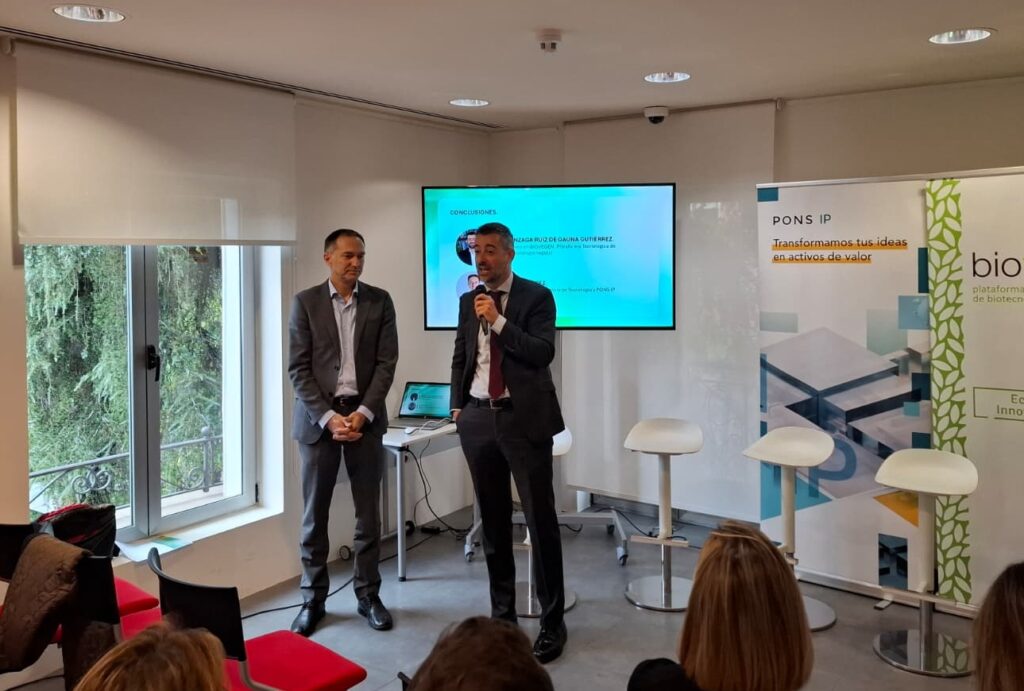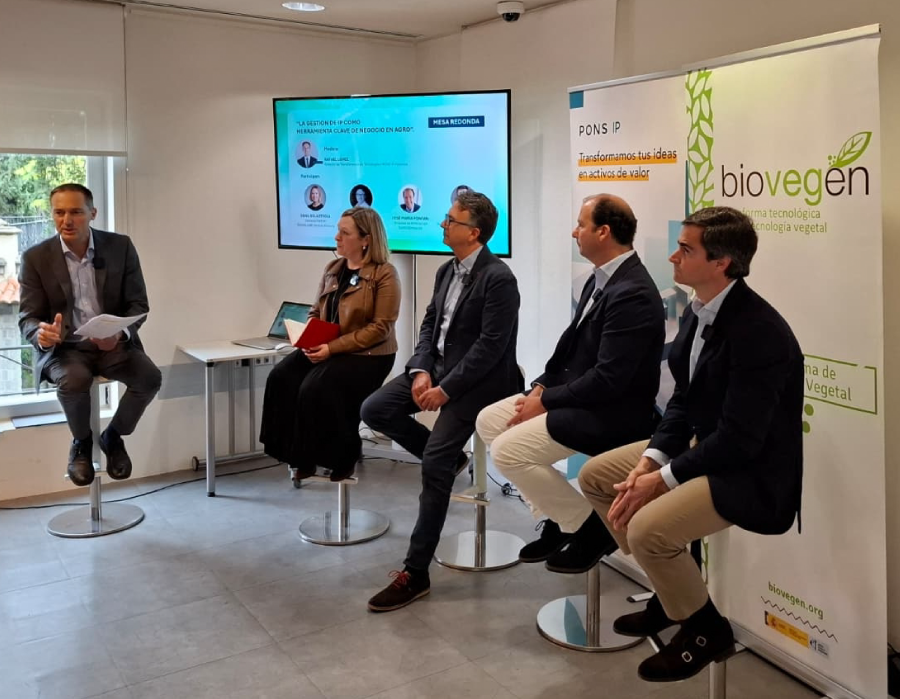PONS IP, a global intellectual property consulting firm, together with BIOVEGEN, the Technology Platform for Plant Biotechnology, held a conference entitled “The strategic value of IP in technology transactions in the agri-food sector,” which brought together more than 70 professionals from the agri-food, investment and innovation ecosystem at the PONS Foundation headquarters in Madrid. The aim was to highlight the value and leadership of our country as one of the most innovative countries in the world in agri-food, placing Spain at the forefront of Europe in both production and the transfer of knowledge and technology applied to the sector.
The General Manager of PONS IP, Nuria Marcos, opened the meeting by emphasising that “the sector must decide what it wants to be when it grows up. Adequate protection of research and development results through patents, utility models, plant varieties or trade secrets can be one of the keys to ensuring a competitive position in the commercial exploitation of innovations, facilitating technology transfer and attracting investment for new projects. Only in this way will the agri-food sector be able to consolidate its leadership and move towards a more innovative and sustainable economy in a sector that is so important for our country.”
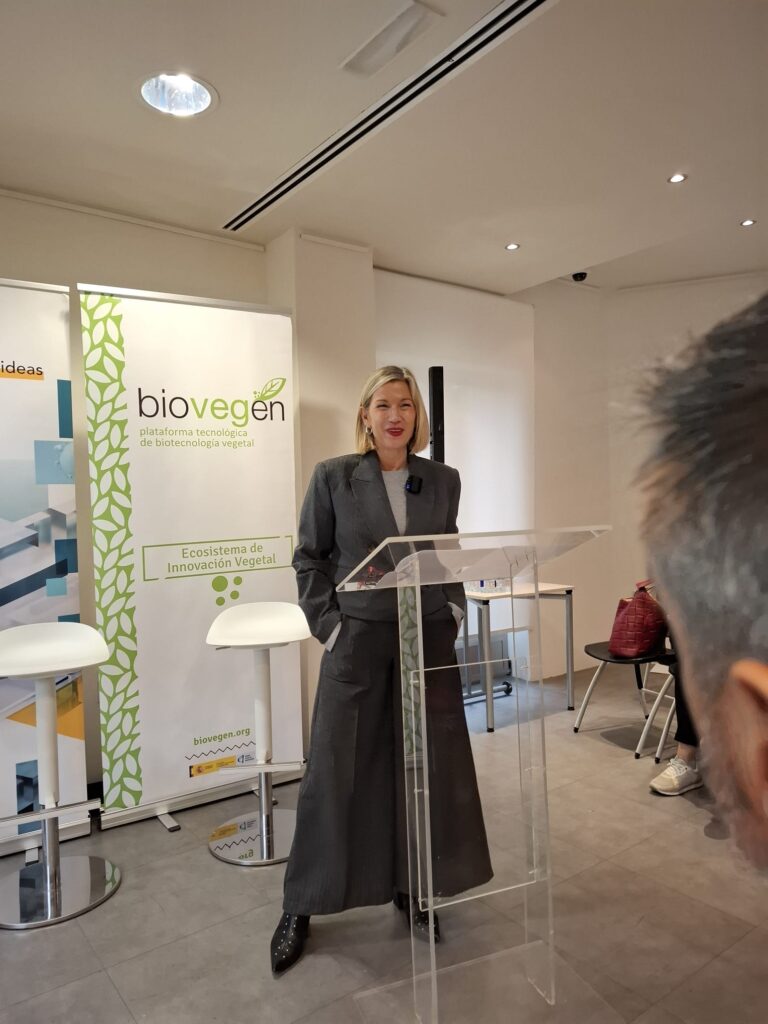
Gonzaga Ruiz de Gauna, manager of BIOVEGEN, offered a positive overview of the sector based on the reports “Spanish Agri-Food Observatory 2024” and “Mapping of the Agrotech Ecosystem in Spain 2024”. The data shows that the agri-food sector already accounts for 8.6% of national GDP and 11.5% of employment, with more than 2.5 million workers. In 2024, gross value added reached €125.16 billion, 3.9% more than the previous year, and exports set a historic record of €76.356 billion, 5.9% more than in 2023. Spain is now the fourth largest European country in terms of contribution to agri-food GVA and a leader in the production of citrus fruits, olive oil and fresh fruit.
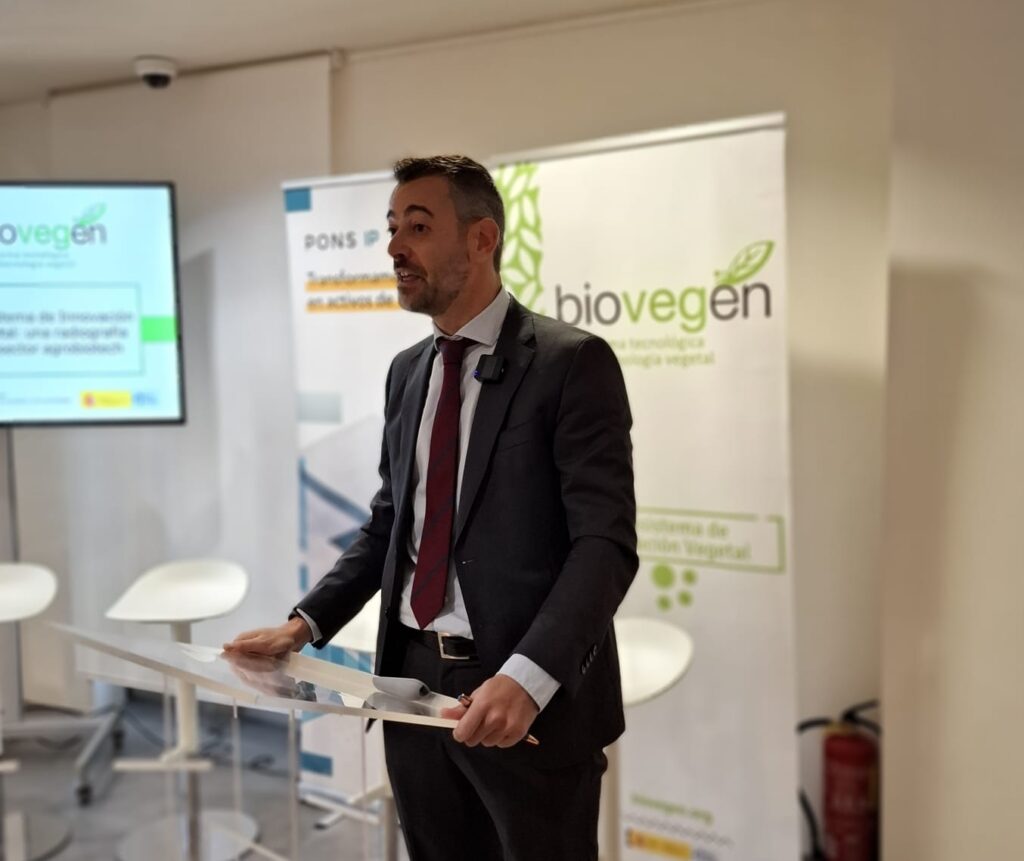
“The plant production sector is cross-cutting, strategic for Spain and competitive at an international level, but it faces challenges in terms of production pressure, climate change and generational renewal that can only be overcome with technology, innovation, talent attraction and knowledge protection,” summarised Ruiz de Gauna.
Next, the round table discussion “IP management as a key business tool in agro”, moderated by Rafael López, Director of Technology Transfer and PONS IP in Valencia, featured Xana Belastegui Macadam, General Partner at Swanlaab Venture Factory; Pedro Álvarez, Co-founder & CEO of IVORO; José María Fontán, Director of Innovation at EUROSEMILLAS; and Unai Castañón, Partner and Head of Food & Beverage at ARCANO PARTNERS.
The speakers agreed that an adequate strategy for protecting innovation in the sector and a “long-term” view are crucial for attracting investment and facilitating technology transfer, and they pointed out that 50% of start-ups that register their IP are more likely to attract funding. The debate focused on the consolidation and maturity of the Spanish Agrifoodtech ecosystem, which received €179 million in investment in 2024, with a 4.8% increase in employment and a strong presence of women in founding teams, now reaching 57%.
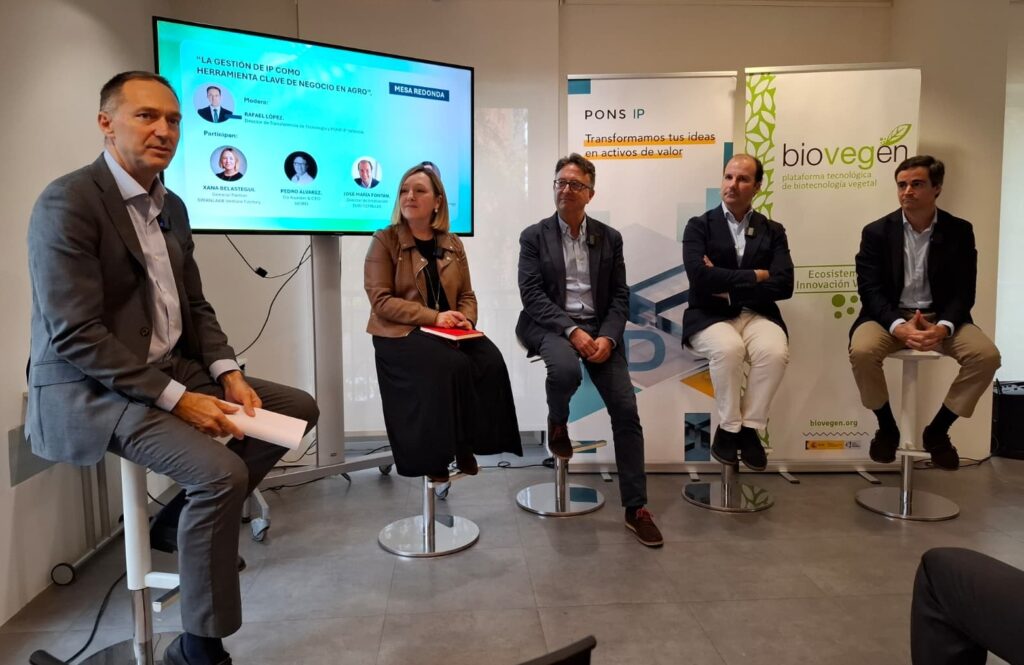
Innovation and talent: the showcase for disruptive start-ups
The showcase for disruptive companies in agri-food, presented by César Marcos, journalist and coordinator of ALAS, highlighted the diversity and innovative potential of the sector. Spain now has a network of more than 850 agrotech start-ups, concentrated in Andalusia, Catalonia, the Valencian Community and Madrid, supported by 50 specialised universities, 20 technology centres and parks, 24 sectoral clusters and 7 technology platforms such as BIOVEGEN. Innovation hubs and incubators drive the birth and growth of companies from their first patents or plant varieties.
Among the six participating start-ups, the following initiatives stood out: TRICOPHARMING, which applies plant biotechnology to optimise crops through the use of microRNAs and the stimulation of trichomes, promoting the sustainable production of high-value compounds; EKONOKE, a pioneer in vertical farming and indoor hop production, which guarantees climate resilience and reduced environmental impact; ID FOREST, a leader in forest biotechnology and applied mycology, developing innovative solutions in biofertilisers, biomaterials and technological truffle farming; BISARI, which promotes the digitisation and intelligent pollination of crops with IoT technology, AI and biotechnology, improving agricultural yields; and BIOCEANICS, a university spin-off that researches and produces sustainable functional ingredients, such as Omega-3 oils from microalgae, offering vegan and efficient alternatives for the food and nutraceutical industry. These companies exemplify the enthusiasm and innovative capacity of the Spanish agrotech ecosystem, contributing to a more competitive, sustainable and future-oriented agriculture. With this shared objective in mind, the case of the start-up PHOENIX caught the audience’s attention with a technology that uses living organisms to transform organic waste into high value-added ingredients, such as protein for animal feed and natural fertilisers, based on the efficient bioconversion of food waste, contributing to a real circular economy and reducing the environmental impact of waste management.
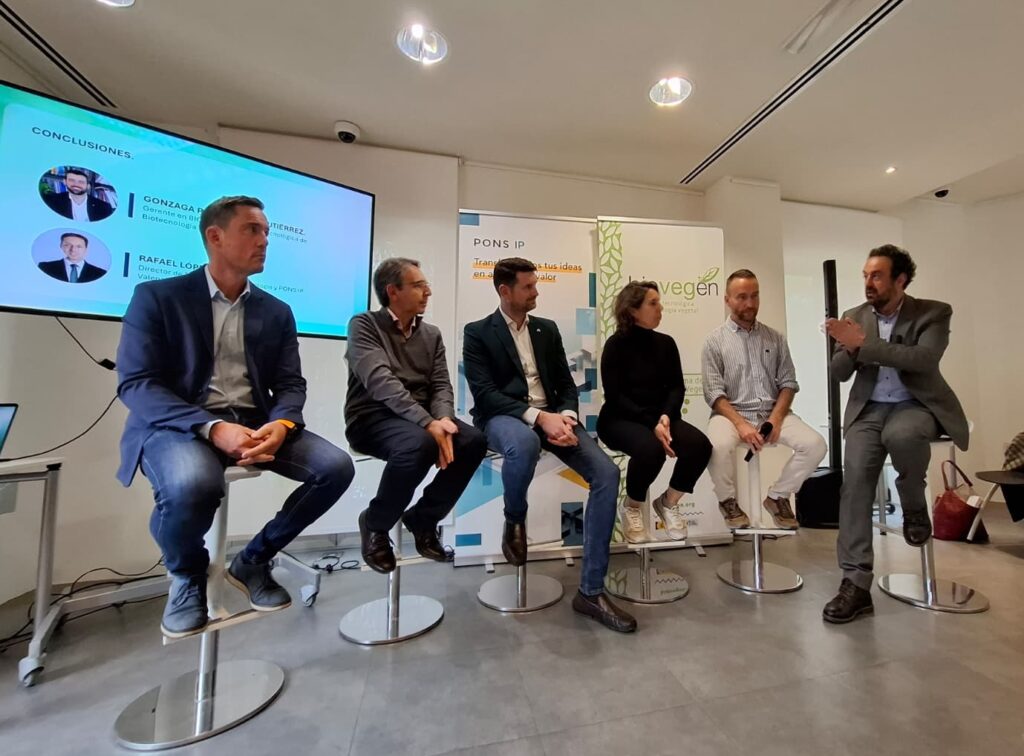
The conference concluded with a call to strengthen public-private collaboration, promote digitisation and consolidate the culture of protecting intellectual property and plant varieties as leverage for internationalisation and competition in the global market. Thus, both Gonzaga Ruiz de Gauna and Rafael López agreed that the Spanish sector “is in a phase of maturity after a period of rapid growth, already attracting investment with a medium- and long-term outlook and, with the right approach, we are in a position to leverage our capacity for innovation to drive our growth through the export of agro technology, although we still need to make a real commitment to a culture of intellectual property that will unlock our full potential as a country in the agri-food sector.”
